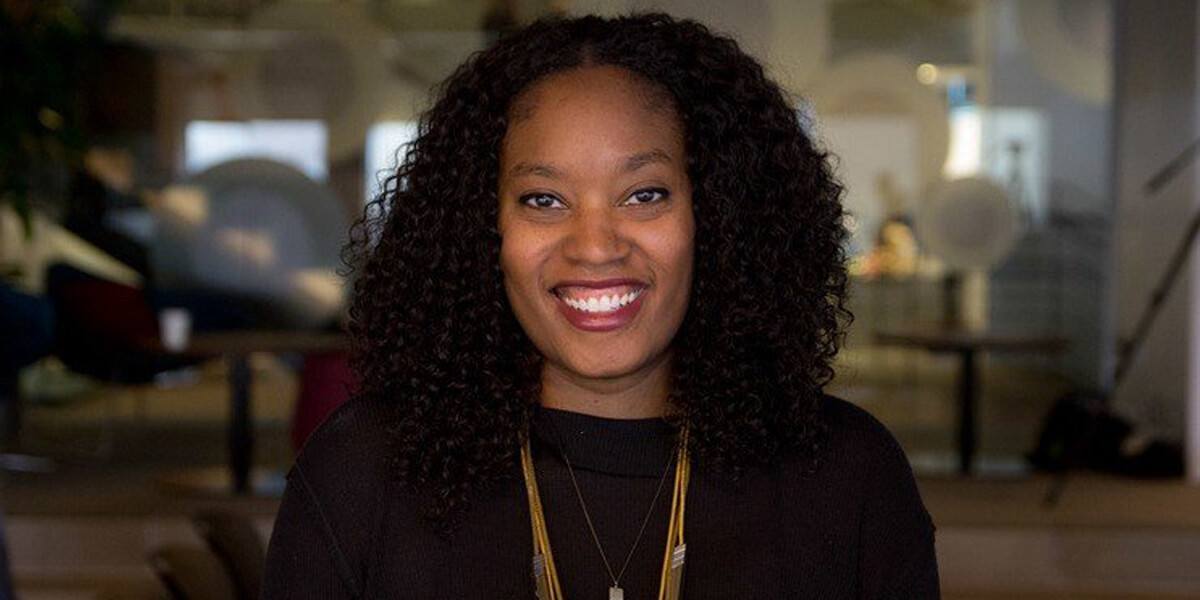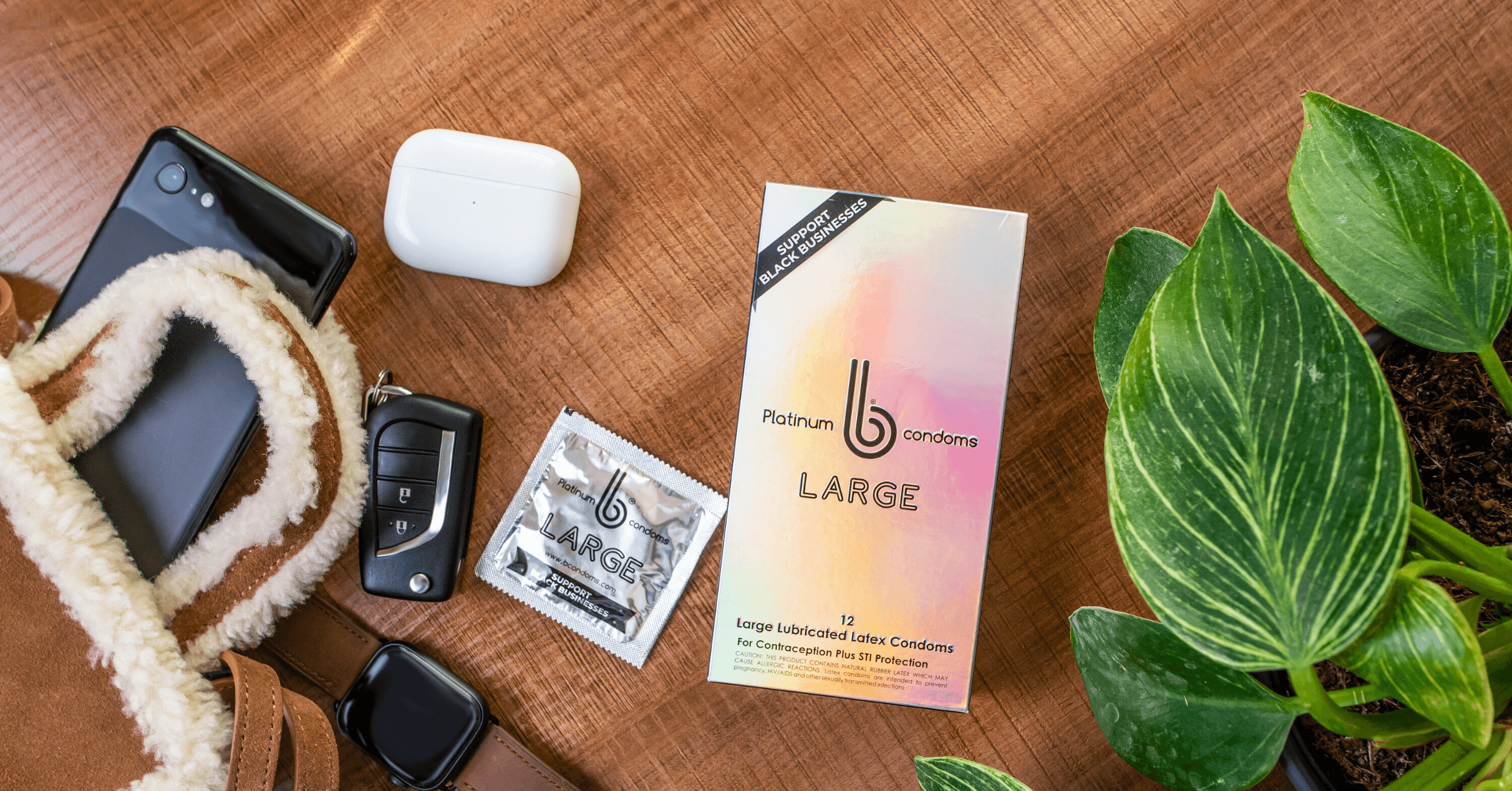“Igot the crazy idea that maybe I can be the person to make this necklace that was also headphones,” said Aniyia Williams, founder and CEO of Tinsel. The Dipper, known as “ the world’s first audio necklace,” signifies the fruits of Williams’ labor, two years in the making. The sleek design is fashionable and functional without the tangles of traditional earbuds. She formed Tinsel in the fall of 2014 while working at a tech startup. With the buy-in of the company CEO, who also happened to be an angel investor, she quit her job to go full throttle in building Tinsel. Williams says the concept for her first product could’ve easily slipped away, but the idea continued to fuel a burning desire in her head. “I use my headphones every day and I got tired of digging these wires out of my bag,” she said during a phone interview. “I wanted to wear them on my body so that they’re not getting tangled and they’re accessible whenever I need them.” After extensive research and realizing that there wasn’t a product like this on the market, Williams set out on a journey that she describes as a “very long process.” Developing a product of this caliber required a number of stages. Williams admits that the manufacturing process was difficult in regards to making a product that never existed. “It’s so hard to compete in the hardware game,” she said, but Williams is a problem solver and gives credit to her cofounder, Monia Santinello. Within the first year of starting Tinsel, Williams recalls a trip to the Consumer Electronics Show where she had difficulties communicating with a representative from a Chinese manufacturing company. There was a language barrier; Williams didn’t speak Chinese and he couldn’t understand her English. Santinello stepped in and spoke to him in Chinese. This is the moment Williams knew she’d sealed a bond with the right cofounder. “You want someone that you respect and deeply trust. When you inevitably get really, really angry at each other. You want to know that the next day you guys are going to come back together and be able to squash it and keep rolling,” she said. “This is a marathon, not a sprint. You have to be in it for the long game.” Williams and Santinello became friends through their husbands before forming Tinsel.
“Maintaining a relationship with your cofounder is like being married to another person.”
Both women were working moms and understood the sacrifices needed to build a company. “So much of this game is psychological. The best cofounder that I could’ve asked for is one that I know was not going to get afraid and run away when things got hard because there have been many, many times when things got hard. We’ve been united. We’ve fought and we’ve hugged,” she said. Upon her reflection, Williams told me that the most challenging hurdle to overcome is one familiar to many women and founders of color; accessing capital. “Raising capital and getting resources has been by far the most difficult thing. Just to get an inch we had to fight so hard. It’s ridiculous because I know that’s not the case for our white male counterparts,” she explained. To date, Williams and her team have raised $485,000 with the backing of Tom Katis and Backstage Capital as well as self-funding.
“We worked our funding with surgical precision.”
Learning the nuts and bolts of hardware in addition to the uphill battle for funding isn’t solely intended for self-reflection, instead, Williams uses her experiences as a teaching tool for women and people of color. She started Black and Brown Founders, an organization dedicated to helping Black and LatinX entrepreneurs build strong tech companies through access and educational resources. “People like me should have a real solid shot,” Williams said. “We’re out here literally reversing the rotation of the Earth and then being told that it’s not enough. We still don’t get the same credibility as some of our counterparts when we walk into these rooms.” She’s also co-founder of Zebras Unite, a social impact movement designed to support startups in generating revenue. In the midst of it all, Williams is raising a toddler with her husband. Many of the women on her core team are mothers all committed to the sacrifice that goes into building. “It’s a series of tradeoffs. Every day of my life is like musical chairs,” she admitted. “It’s not my investment, it’s the investment of many others. Having a good team that I work with and a good team at home.” In the last four years, Williams says starting the company and developing a product meant a journey of self-discovery. Personhood is what matters beyond the talent and the connections. “You can have any idea, but ultimately, if you don’t do the things you need to do to take care of yourself and building around your strengths and weaknesses, you’re doomed from the start,” she said. Her mission is to change the landscape for entrepreneurs of color and she says change cannot occur until the ecosystems begin to shift which means opening up resources.
“You have to be fulfilled by this work to do this work. It’s not always glamorous. It’s hard and it’s grueling. Your willingness to understand yourself and willingness to grow as a person is the biggest thing that you can bring to anything that you do, especially in starting a company.”
Ultimately, Williams wants to see more people of color involved in the hardware space. She’s beginning to have more conversations around building out models and developing teaching tools. “We’re so good at being makers. People like us can be nimble and get in there. We should be out here making more products,” Williams said. “It doesn’t have to be electronics. There should be more black-owned businesses that puts items in the hands of consumers like the Rich Dennis’ of the world.”








